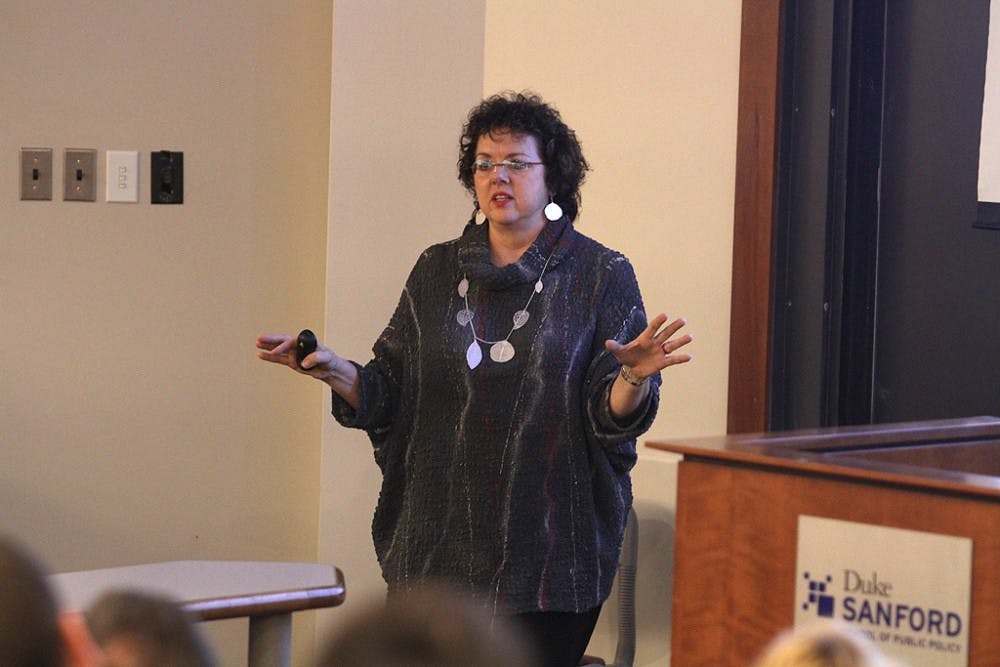World leaders must coordinate their efforts in order to address issues in global health, journalist Laurie Garrett said.
Garrett, senior fellow for global health at the Council on Foreign Relations, addressed issues surrounding global health policies and funding at the Sanford School of Policy Monday. The event kicked off the fifth annual Duke Global Health Week, which is spearheaded by Duke Partnership for Service, with participation by more than 20 student groups. In her talk, titled “The Future of Global Health Policy,” Garrett noted that strides in global health are impeded by the failure of world leaders to collaborate on initiatives and a general lack of guidance regarding the way funds are managed.
“It’s hard to get the leaders of the world to focus on global health,” Garrett said.
She noted that political leaders are often distracted by domestic issues, such as natural disasters, war and uprisings, and may not always prioritize global health efforts. This lack of coordination by world leaders, coupled with the global financial crisis, has reduced the amount of funding previously invested in global health.
Private donors have also cut down on financial contributions. Total private donations—excluding funds from the Bill & Melinda Gates Foundation—have fallen from about $2 billion in 2008 to $1 billion in 2011, Garrett wrote in a March 6 article published by the Council on Foreign Relations. The United States government is responsible for 52 percent of all public giving, and the Bill & Melinda Gates Foundation is responsible for 68 percent of all private giving for global health.
“We have recreated the entire architecture of global health,” Garrett said. “It’s all about the donors on the field and where they throw their money.”
In the United States, Garrett noted that Sept. 11 and nationwide anthrax scares drew attention to global health issues and further highlighted the government’s failure to understand and address problems surrounding public health.
Garrett added, however, that the U.S. government allocates less than 1 percent of the federal budget to global health. Funding has also been declining sharply from European countries, as well as organizations worldwide.
The budget of the World Health Organization, for example, has declined $5.4 billion in 2006-2007 to its current 2012-2013 budget of $3.9 billion—a decline of $1.5 billion. In addition, the WHO’s voluntary donations have fallen 50 percent since 2008, according to Garrett’s article.
Health care workers are in short supply, and many Third World countries lack the basic infrastructure necessary in healing and medicine, Garrett said. Garrett urged world leaders to set politics aside and focus on coordinating their efforts in global health.
“We need to get out of our current box of thinking about global health and start thinking about lasting permanent change,” she said.
Michael Merson, director of the Duke Global Health Institute, introduced Garrett and emphasized her influence as a Pulitzer Prize-winning journalist and author.
“She’s one of America’s most knowledgeable authorities and one of the most respected in the field,” Merson said. “She is a true leader… [who] sought answers that were far ahead of her peers.”
Senior Braveen Ragunanthan attended the event and said he interpreted Garrett’s talk as a call to action.
“Her ability to sound the alarm at the seriousness of the situation is important for society to understand, but now we need to react to be the voice for global health,” Ragunanthan said. “We have a moral obligation to take action if we truly believe in global health.”
Get The Chronicle straight to your inbox
Signup for our weekly newsletter. Cancel at any time.

